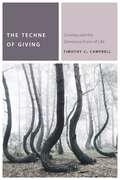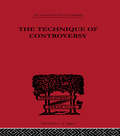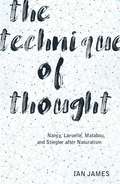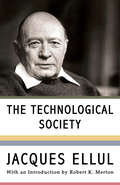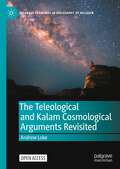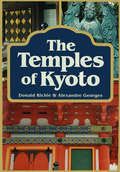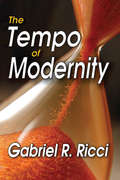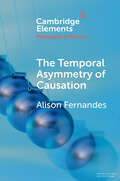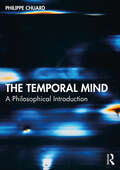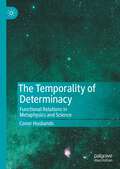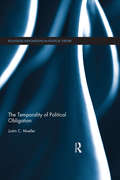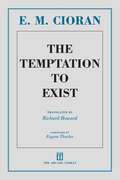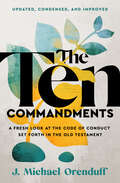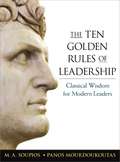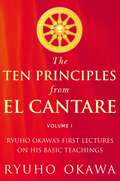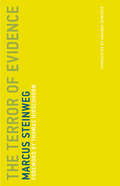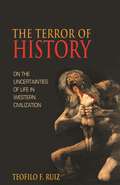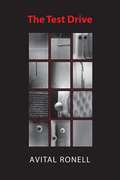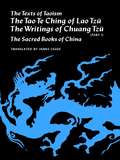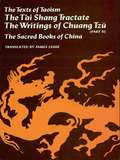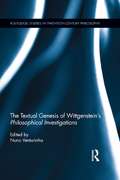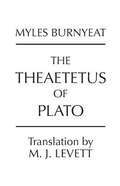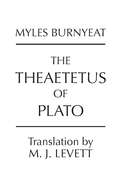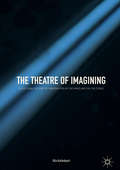- Table View
- List View
The Teachings of Emanuel Swedenborg: Vol. II
by Emanuel SwedenborgThe New Jerusalem and its Heavenly Doctrine is a wonderful introduction to the beliefs of the New Church and an overview of its theological foundations. Here Emanuel Swedenborg discusses faith, love, goodness and truth, heaven and hell, divine providence, the holy sacraments, and much much more. For those wishing to explore the writings of Emanuel Swedenborg this is a perfect starting place. Also included in this volume are the short works White Horse, Brief Exposition, De Verbo, God the Savior, and Interaction of the Soul and Body. Emanuel Swedenborg was a Swedish scientist, philosopher, Christian mystic, and theologian. Swedenborg experienced dreams and visions in which he was appointed by the Lord to write a heavenly doctrine to reform Christianity. He claimed that the Lord had opened his eyes, so that he could freely visit heaven and hell and talk with angels, demons, and other spirits. His best known book is Heaven and Hell.
The Techne of Giving: Cinema and the Generous Form of Life (Commonalities)
by Timothy C. CampbellOver the last five years, corporations and individuals have given more money, more often, to charitable organizations than ever before. What could possibly be the downside to inhabiting a golden age of gift-giving? That question lies at the heart of Timothy Campbell’s account of contemporary giving and its social forms. In a milieu where gift-giving dominates, nearly everything given and received becomes the subject of a calculus—gifts from God, from benefactors, from those who have. Is there another way to conceive of generosity? What would giving and receiving without gifts look like?A lucid and imaginative intervention in both European philosophy and film theory, The Techne of Giving investigates how we hold the objects of daily life—indeed, how we hold ourselves—in relation to neoliberal forms of gift-giving. Even as instrumentalism permeates giving, Campbell articulates a resistant techne locatable in forms of generosity that fail to coincide with biopower’s assertion that the only gifts that count are those given and received. Moving between visual studies, Winnicottian psychoanalysis, Foucauldian biopower, and apparatus theory, Campbell makes a case for how to give and receive without giving gifts. In the conversation between political philosophy and classic Italian films by Visconti, Rossellini, and Antonioni, the potential emerges of a generous form of life that can cross between the visible and invisible, the fated and the free.
The Technique of Controversy: Principles of Dynamic Logic (International Library of Philosophy)
by Boris B. BogoslovskyFirst published in 2000. Routledge is an imprint of Taylor & Francis, an informa company.
The Technique of Thought: Nancy, Laruelle, Malabou, and Stiegler after Naturalism
by Ian JamesInterrogating the work of four contemporary French philosophers to rethink philosophy&’s relationship to science and science&’s relationship to realityThe Technique of Thought explores the relationship between philosophy and science as articulated in the work of four contemporary French thinkers—Jean-Luc Nancy, François Laruelle, Catherine Malabou, and Bernard Stiegler. Situating their writings within both contemporary scientific debates and the philosophy of science, Ian James elaborates a philosophical naturalism that is notably distinct from the Anglo-American tradition. The naturalism James proposes also diverges decisively from the ways in which continental philosophy has previously engaged with the sciences. He explores the technical procedures and discursive methods used by each of the four thinkers as distinct &“techniques of thought&” that approach scientific understanding and knowledge experimentally. Moving beyond debates about the constructed nature of scientific knowledge, The Technique of Thought argues for a strong, variably configured, and entirely novel scientific realism. By bringing together post-phenomenological perspectives concerning individual or collective consciousness and first-person qualitative experience with science&’s focus on objective and third-person quantitative knowledge, James tracks the emergence of a new image of the sciences and of scientific practice. Stripped of aspirations toward total mastery of the universe or a &“grand theory of everything,&” this renewed scientific worldview, along with the simultaneous reconfiguration of philosophy&’s relationship to science, opens up new ways of interrogating immanent reality.
The Technological Society
by Jacques EllulAs insightful and wise today as it was when originally published in 1954, Jacques Ellul's The Technological Society has become a classic in its field, laying the groundwork for all other studies of technology and society that have followed. Ellul offers a penetrating analysis of our technological civilization, showing how technology—which began innocuously enough as a servant of humankind—threatens to overthrow humanity itself in its ongoing creation of an environment that meets its own ends. No conversation about the dangers of technology and its unavoidable effects on society can begin without a careful reading of this book. "A magnificent book . . . He goes through one human activity after another and shows how it has been technicized, rendered efficient, and diminished in the process.&”—Harper's &“One of the most important books of the second half of the twentieth-century. In it, Jacques Ellul convincingly demonstrates that technology, which we continue to conceptualize as the servant of man, will overthrow everything that prevents the internal logic of its development, including humanity itself—unless we take necessary steps to move human society out of the environment that 'technique' is creating to meet its own needs.&”—The Nation &“A description of the way in which technology has become completely autonomous and is in the process of taking over the traditional values of every society without exception, subverting and suppressing these values to produce at last a monolithic world culture in which all non-technological difference and variety are mere appearance.&”—Los Angeles Free Press
The Teleological and Kalam Cosmological Arguments Revisited (Palgrave Frontiers in Philosophy of Religion)
by Andrew LokeA prominent issue in many contemporary philosophy of religion debates concerns whether the universe has a Designer. This book moves the discussion ahead in a significant way by devising an original deductive formulation of the Teleological Argument (TA) which demonstrates that the following are the only possible categories of hypotheses concerning fine-tuning and order: (i) chance, (ii) regularity, (iii) combinations of regularity and chance, (iv) uncaused, and (v) design. This book also demonstrates that there are essential features of each category such that, while the alternatives to design are unlikely, the Design Hypothesis is not, and that one can argue for design by exclusion without having to first assign a prior probability for design. By combining the TA with the Kalam Cosmological Argument (KCA) which it defends against various objections, this book responds to the God-of-the-gaps objection by demonstrating that the conclusion of the KCA-TA is not based on gaps which can be filled by further scientific progress, but follows from deduction and exclusion.This is an open access book.
The Temples of Kyoto
by Donald Richie Alexandre GeorgesThe Temples of Kyoto takes you on a journey through these environs and presents twenty-one of these marvelous structures that are unique creations which, while quintessentially Japanese, somehow speak a universal languagereadily appreciated by people the world over. Donald Richie, called by Time magazine, "the dean of art critics in Japan," turns his attention to these twenty-one temples with scholarship and an eye for the dramatic. Drawingoff such classic sources as The Tale of Genji and Essays in Idleness, he takes the reader on a tour through the ages, first with a comprehensive history of Japanese Buddhism, and then by highlighting key events in the development of these "celestial-seeming cities." From the Tendai warrior-priests of Enryaku-ji to the floating vision of paradise at Byodo-in, to the magical gardens of Tofuku-ji, the past springs into the present and the temples truly take on a life of their own in a thrilling narrative that weaves fact and legend into a guide as entertaining as it is informative. Brilliant photographs of the temples, taken by the award-winning photographer Alexandre Georges, complement the text and provide a visual overview of the subject matter. His keen eye captures on film the elements that make each temple noteworthy, including their interiors, and objets d'art, in a fresh and thought provoking manner. The result is this book: a testament and meditation on the power and elegance of these world-renowned structures that are both places of worship and examples of the finest art Japan has ever produced.
The Tempo of Modernity
by Gabriel R. RicciThe present work is a study in the history of an enduring idea that defines the inner life of the mind and also supplied a substratum for the twentieth-century literary imagination and substance for philosophical thinking, producing a unique alliance between philosophy and literature. This special union was forged by a new holistic conception of time which supplemented, and even supplanted, the conventional sense of chronological time. This temporal turn animated the existential insights of Husserl, Heidegger, and Bergson, but it was grounded in nineteenth-century advances in the biological sciences, the hegemony of Hegelianism, and even stretched back to Augustine's early meditation on time in Book XI of his Confessions. In linking together a set of thinkers who addressed this form of temporal consciousness, Gabriel R. Ricci illuminates a common intellectual preoccupation from the vantage point of a concept. The authors do not together assemble the thought; it is the thought that produced a collective voice. This voice appears in the episodes outlined in each chapter, and they are framed by an introduction, which explores Joseph Frank's insights into the new spatial forms in literature, and an epilogue, which resurrects J.W. Dunne's peculiar dream experiments and theory of precognition. Ricci employs Frank's seminal essay to draw comparisons between literature's adaptation of the new time sense and philosophy's expression of the new compatibility between space and time. Dunne's theory serves to demonstrate the continuity between literary form and philosophical speculation.
The Temporal Asymmetry of Causation (Elements in the Philosophy of Physics)
by Alison FernandesCauses always seem to come prior to their effects. What might explain this asymmetry? Causation's temporal asymmetry isn't straightforwardly due to a temporal asymmetry in the laws of nature—the laws are, by and large, temporally symmetric. Nor does the asymmetry appear due to an asymmetry in time itself. This Element examines recent empirical attempts to explain the temporal asymmetry of causation: statistical mechanical accounts, agency accounts and fork asymmetry accounts. None of these accounts are complete yet and a full explanation of the temporal asymmetry of causation will likely require contributions from all three programs.
The Temporal Mind: A Philosophical Introduction
by Philippe ChuardMemories, sensory experiences, expectations, and intentions, as well as thoughts, fears, and hopes: all share a fundamental trait, the fact that our conscious psychological states take place in time, and often are about time in some way or other. Temporality is an inescapable feature of the mind which has preoccupied philosophers and psychologists in diverse traditions such as Locke, Hume, Reid, Kant, Helmholtz, James, Husserl, Broad, and Bergson.The Temporal Mind: A Philosophical Introduction is the first book to offer a detailed critical survey of recent work on the perception of time and the temporal features of the mind. Philippe Chuard introduces some of the central topics in contemporary discussions of the temporal mind and the perception of time: how psychological states occur in time and convey temporal information the stream of consciousness, duration, and how short conscious experiences may be the continuity and unity of conscious experience how sensory perception in particular can represent the timing of perceived events the debate between extensionalism, retentionalism, and the snapshot conception of temporal experiences, as well as between temporal holism and atomism temporal illusions (such as the flash-lag effect) and what they reveal about temporal representation temporality in neuroscience and neuroscientific explanations of perception Including additional features such as suggested further readings sections and a glossary, The Temporal Mind is an ideal starting point for any student in philosophy of mind and perception, and cognate fields in psychology and cognitive science.
The Temporality of Determinacy: Functional Relations in Metaphysics and Science
by Conor HusbandsMetaphysics has often held that laws of nature, if legitimate, must be time-independent. Yet mounting evidence from the foundations of science suggests that this constraint may be obsolete. This book provides arguments against this atemporality conjecture, which it locates both in metaphysics and in the philosophy of science, drawing on developments in a range of fields, from the foundations of physics to the philosophy of finance. It then seeks to excavate an alternative philosophical lineage which reconciles time-dependent laws with determinism, converging in the thought of Immanuel Kant.
The Temporality of Political Obligation (Routledge Innovations in Political Theory)
by Justin Chandler MuellerThe Temporality of Political Obligation offers a critique and reconceptualization of the ways in which our political obligations – what we owe to political authorities and communities, and the reasons why we ought to obey their rules – have been traditionally conceptualized, justified, and contested. Drawing from theories of time and temporality, Justin Mueller demonstrates some of the unacknowledged assumptions and theoretical blind spots shared among these ostensibly opposed positions, and the problems and contradictions that this neglect of time poses. Enriching the literature on the philosophers Henri Bergson and Gilles Deleuze, Mueller demonstrates how their theoretical frameworks on time can be used to analyze a political problem that is usually confined to the concerns of normative liberal democratic theory. Politically, this book provides readers with the means to better identify and analyze the diverse temporalities they encounter in everyday life, and better understand their experiences of them. A welcomed and timely read which will be of interest to scholars involved in recent efforts to engage with the social and political dimensions and consequences of time and temporality.
The Temptation to Exist
by E. M. CioranThis collection of eleven essays originally appeared in France thirty years ago and created a literary whirlwind on the Left Bank. Cioran writes incisively about Western civilizations, the writer, the novel, mystics, apostles, and philosophers.The Temptation to Exist first introduced this brilliant European thinker twenty years ago to American readers, in a superb translation by Richard Howard. This literary mystique around Cioran continues to grow, and The Temptation to Exist has become an underground classic. In this work Cioran writes about Western civilizations, the writer, the novel, about mystics, apostles, philosophers. For those to whom the very word philosophy brings visions of arduous reading, be assured: Cioran is crystal-clear, his style quotable and aphoristic."A sort of final philosopher of the Western world. His statements have the compression of poetry and the audacity of cosmic clowning”-The Washington Post
The Ten Commandments: A Fresh Look at the Code of Conduct Set Forth in the Old Testament
by J. Michael OrenduffAn award-winning author offers a fresh look at the code of conduct set forth in the Old Testament. The Ten Commandments are in dire need of an update. After all, how many of us truly understand what it means to covet something? Or what constitutes making a graven image? But how do we revise the Bible? Isn&’t it blasphemous to suggest that the Word of God needs improvement? Author J. Michael Orenduff, who taught philosophy and religion for forty years, is not proposing that we change God&’s words, but our understanding of them. The world has changed a great deal since the rules were handed down to Moses on Mount Sinai. And since we are no longer nomads roaming the desert, the time has come for an interpretation that provides meaning and guidance in today&’s complex society. For example, what exactly does honoring one&’s mother and father mean in a single-parent household—or one with two mothers? How should we interpret the command &“Thou shalt not kill&” when it comes to wielding a weapon in self-defense or on the frontlines of a just war? In an era when truth has become as variable as the individual broadcasting it on social media, shouldn&’t the rule about bearing false witness be broadened to hold more people accountable? In a warm, witty voice, Orenduff grapples with the moral code outlined in the Old Testament, examining differing theological traditions to offer an understanding of God&’s commandments that is accessible and meaningful for the modern reader.
The Ten Golden Rules of Leadership: Classical Wisdom For Modern Leaders
by Panos Mourdoukoutas M. A. SoupiosSkills and experience might land you a leadership position, but they don't make you a true leader. Leadership comes from inside--and the greatest leaders first question themselves before they tackle the world around them. To aid in this critical interrogation, The Ten Golden Rules of Leadership explores ideas from Aristotle, Heraclitus, Sophocles, Hesiod, and other great thinkers, including: Know thyself * Do not waste energy on things you cannot change * Nurture community * Always embrace the truth * Let competition reveal talent * Live life by a higher code * Understand that character is destiny Then it shows you how to take each idea--along with what you've learned about yourself--and apply it to the challenges of the modern workplace. As Aristotle tutored Alexander the Great, you too will learn what it takes to conquer all.
The Ten Principles from El Cantare
by Ryuho OkawaThis book contains the historic lectures given on the first five principles of the Ten Principles of Happy Science from the author, Ryuho Okawa, who is revered as World Teacher. He established Happy Science in October 1986, and built Head Temples, local temples, and missionary centers around the world, with members in more than 160 countries around the globe.These first five lectures produced an enthusiastic fellowship in Happy Science Japan and became the foundation of the current global utopian movement. It starts with the historic lecture, The Principle of Happiness, in which Okawa delivered The Fourfold Path of Love, Wisdom, Self-Reflection and Progress, a universal method to attain true happiness for all people revealed to the world for the first time.In this book, you can learn the essence of Okawa&’s teachings and the secret behind the rapid growth of the Happy Science movement in simple language.By reading this book and implementing the Exploration of the Right Mind in your life, you will come to know that your essence is that of a spiritual being and learn that the mind is the only thing you can take back to the other world or afterlife.Also, by living the Fourfold Path of Love, Wisdom, Self-Reflection and Progress, you will attain true happiness and start on your path to enlightenment. These principles serve to integrate all religion, philosophy, and academic study.
The Terror of Evidence (Untimely Meditations #4)
by Marcus SteinwegThis is the first book by the prolific German philosopher Marcus Steinweg to be available in English translation. The Terror of Evidence offers meditations, maxims, aphorisms, notes, and comments—191 texts ranging in length from three words to three pages—the deceptive simplicity of which challenges the reader to think. “Thinking means getting lost again and again,” Steinweg observes. Reality is the ever-broken promise of consistency; “the terror of evidence” arises from the inconsistency before our eyes. Thinking is a means of coping with that inconsistency. Steinweg is known for his collaborations with Thomas Hirschhorn and the lectures and texts he has provided for many of Hirschhorn's projects. This translation of The Terror of Evidence includes a foreword by Hirschhorn written especially for the MIT Press edition. The subjects of these short texts vary widely. (“The table of contents is in itself excessive and ambitious,” writes Hirschhorn.) They include pathos, passivity, genius, resentment, love, horror, catastrophe, and racism. And club sandwiches (specifically, Foucault's love for this American specialty), blow jobs, and dance. Also: “Two Kinds of Obscurantism,” “Putting Words in Spinoza's Mouth,” “Note on Rorty,” and “Doubting Doubt.” The Terror of Evidence can be considered a guidebook to thinking: the daily journey of exploration, the incessant questioning of reality that Steinweg sees as the task of philosophy.
The Terror of History: On the Uncertainties of Life in Western Civilization
by Teofilo F. RuizA reflection on the diverse ways Western humanity has attempted to escape its frightening historyThis book reflects on Western humanity's efforts to escape from history and its terrors—from the existential condition and natural disasters to the endless succession of wars and other man-made catastrophes. Drawing on historical episodes ranging from antiquity to the recent past, and combining them with literary examples and personal reflections, Teofilo Ruiz explores the embrace of religious experiences, the pursuit of worldly success and pleasures, and the quest for beauty and knowledge as three primary responses to the individual and collective nightmares of history. The result is a profound meditation on how men and women in Western society sought (and still seek) to make meaning of the world and its disturbing history.In chapters that range widely across Western history and culture, The Terror of History takes up religion, the material world, and the world of art and knowledge. "Religion and the World to Come" examines orthodox and heterodox forms of spirituality, apocalyptic movements, mysticism, supernatural beliefs, and many forms of esotericism, including magic, alchemy, astrology, and witchcraft. "The World of Matter and the Senses" considers material riches, festivals and carnivals, sports, sex, and utopian communities. Finally, "The Lure of Beauty and Knowledge" looks at cultural productions of all sorts, from art to scholarship.Combining astonishing historical breadth with a personal and accessible narrative style, The Terror of History is a moving testimony to the incredibly diverse ways humans have sought to cope with their frightening history.
The Test Drive
by Avital RonellThe Test Drive deals with the war perpetrated by highly determined reactionary forces on science and research. How does the government at once promote and prohibit scientific testing and undercut the importance of experimentation? To what extent is testing at the forefront of theoretical and practical concerns today? Addressed to those who are left stranded by speculative thinking and unhinged by cognitive discourse, The Test Drive points to a toxic residue of uninterrogated questions raised by Nietzsche, Husserl and Derrida. Ranging from the scientific probe to modalities of testing that include the limits of friendship or love, this work explores the crucial operations of an uncontestable legitimating machine. Avital Ronell offers a tour-de-force reading of legal, pharmaceutical, artistic, scientific, Zen, and historical grids that depend upon different types of testability, involving among other issues what it means to put oneself to the test.
The Texts of Taoism: Part I
by James LeggeThese two volumes contain the complete James Legge translation of the sacred writings of the great mystical religion that for millennia has counterbalanced the official Confucianism of the Chinese state. Together with the Confucian canon, these writings have been avidly studied by generations of Chinese scholars and literary men and their place in the formation of Chinese civilization is central.First published as volume xxxix and xl of Max Müller's Sacred Books of the East series, these volumes contain the complete texts of the Tao Te Ching attributed to Lao Tzü; the writings of Chuang Tzü; and several shorter works; the T'ai Shang or Tractate of Actions and Their Retributions, the Ch'ing Chang Ching or Classic of Purity, the Yin Fu Ching of Classic of the Harmony of the Seen and Unseen, the Yü Shu Ching or Classic of the Pivot of jade, and the Hsia Yung Ching or Classic of the Directory for a Day. Many of these lesser documents are to be found in translation only in this collection.Professor Legge, who held the chair in Chinese language and literature at Oxford for 20 years, introduces the collection with a discussion of differences among Confucianism, Taoism, and Buddhism, the authorship of the Tao Te Ching, the real meaning of Tao in Chinese thought, and other backgrounds.Orientalists and students of religion have long recognized this collection as indispensable. But laymen will find that the Tao Te Ching is not only profound but provocative and stimulating and that the parables and tales in the work of Chuang Tzü are delightful reading.
The Texts of Taoism: Part II
by James LeggeThese two volumes contain the complete James Legge translation of the sacred writings of the great mystical religion that for millennia has counterbalanced the official Confucianism of the Chinese state. Together with the Confucian canon, these writings have been avidly studied by generations of Chinese scholars and literary men and their place in the formation of Chinese civilization is central.First published as volume xxxix and xl of Max Müller's Sacred Books of the East series, these volumes contain the complete texts of the Tao Te Ching attributed to Lao Tzü; the writings of Chuang Tzü; and several shorter works; the T'ai Shang or Tractate of Actions and Their Retributions, the Ch'ing Chang Ching or Classic of Purity, the Yin Fu Ching of Classic of the Harmony of the Seen and Unseen, the Yü Shu Ching or Classic of the Pivot of jade, and the Hsia Yung Ching or Classic of the Directory for a Day. Many of these lesser documents are to be found in translation only in this collection.Professor Legge, who held the chair in Chinese language and literature at Oxford for 20 years, introduces the collection with a discussion of differences among Confucianism, Taoism, and Buddhism, the authorship of the Tao Te Ching, the real meaning of Tao in Chinese thought, and other backgrounds.Orientalists and students of religion have long recognized this collection as indispensable. But laymen will find that the Tao Te Ching is not only profound but provocative and stimulating and that the parables and tales in the work of Chuang Tzü are delightful reading.
The Textual Genesis of Wittgenstein's Philosophical Investigations (Routledge Studies in Twentieth-Century Philosophy)
by Nuno VenturinhaSixty years after its first edition, there is an increasing consensus among scholars that the work posthumously published as Philosophical Investigations represents something that is far from a complete picture of Wittgenstein’s second book project. G.H. von Wright’s seminal research on the Nachlass was an important contribution in this direction, showing that the Wittgenstein papers can reveal much more than the source of specific remarks. This book specifically explores Wittgenstein’s Philosophical Investigations from the different angles of its originary conceptions, including the mathematical texts, shedding new light on fundamental issues in twentieth century and contemporary philosophy. Leading authorities in the field focus on newly published or hitherto unpublished sources for the interpretation of Wittgenstein’s later work and a Wittgenstein typescript, translated for the first time into English, is included as an appendix.
The Theaetetus Of Plato
by Plato Myles Burnyeat M. J. LevettM. J. Levett's elegant translation of Plato's Theaetetus , first published in 1928, is here revised by Myles Burnyeat to reflect contemporary standards of accuracy while retaining the style, imagery, and idiomatic speech for which the Levett translation is unparalleled. Bernard Williams concise introduction, aimed at undergraduate students, illuminates the powerful argument of this complex dialogue, and illustrates its connections to contemporary metaphysical and epistemological concerns.
The Theaetetus of Plato
by Plato Myles Burnyeat M. J. LevettM. J. Levett's elegant translation of Plato's Theaetetus, first published in 1928, is here revised by Myles Burnyeat to reflect contemporary standards of accuracy while retaining the style, imagery, and idiomatic speech for which the Levett translation is unparalleled. Bernard William’s concise introduction, aimed at undergraduate students, illuminates the powerful argument of this complex dialogue, and illustrates its connections to contemporary metaphysical and epistemological concerns.
The Theatre of Imagining: A Cultural History of Imagination in the Mind and on the Stage
by Ulla KallenbachThis book is the first comprehensive analysis of the fascinating and strikingly diverse history of imagination in the context of theatre and drama. Key questions that the book explores are: How do spectators engage with the drama in performance, and how does the historical context influence the dramaturgy of imagination? In addition to offering a study of the cultural history and theory of imagination in a European context including its philosophical, physiological, cultural and political implications, the book examines the cultural enactment of imagination in the drama text and offers practical strategies for analyzing the aesthetic practice of imagination in drama texts. It covers the early modern to the late modernist period and includes three in-depth case studies: William Shakespeare’s Macbeth (c.1606); Henrik Ibsen’s A Doll’s House (1879); and Eugène Ionesco’s The Killer (1957).

